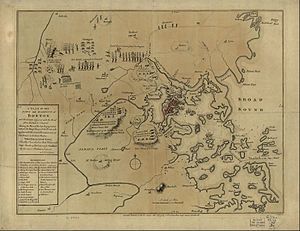This is your morning Open Thread. Pour your favorite beverage and review the past and comment on the future.
Find the past “On This Day in History” here.
April 23 is the 113th day of the year (114th in leap years) in the Gregorian calendar. There are 252 days remaining until the end of the year.
On this day in 1564, William Shakespeare born.
According to tradition, the great English dramatist and poet William Shakespeare is born in Stratford-on-Avon on April 23, 1564. It is impossible to be certain the exact day on which he was born, but church records show that he was baptized on April 26, and three days was a customary amount of time to wait before baptizing a newborn. Shakespeare’s date of death is conclusively known, however: it was April 23, 1616. He was 52 years old and had retired to Stratford three years before.
Shakespeare’s father was probably a common tradesman. He became an alderman and bailiff in Stratford-upon-Avon, and Shakespeare was baptized in the town on April 26, 1564. At age 18, Shakespeare married Anne Hathaway, and the couple had a daughter in 1583 and twins in 1585. Hamnet, Shakespeare’s only son, died 11 years later, and Anne Shakespeare outlived her husband, dying in 1623. Nothing is known of the period between the birth of the twins and Shakespeare’s emergence as a playwright in London in the early 1590s, but unfounded stories have him stealing deer, joining a group of traveling players, becoming a schoolteacher, or serving as a soldier in the Low Countries.
Sometime later, Shakespeare set off for London to become an actor and by 1592 was well established in London’s theatrical world as both a performer and a playwright. The first reference to Shakespeare as a London playwright came in 1592, when a fellow dramatist, Robert Greene, wrote derogatorily of him on his deathbed. His earliest plays, including The Comedy of Errors and The Taming of the Shrew, were written in the early 1590s. Later in the decade, he wrote tragedies such as Romeo and Juliet (1594-1595) and comedies including The Merchant of Venice (1596-1597). His greatest tragedies were written after 1600, including Hamlet (1600-01), Othello (1604-05), King Lear (1605-06), and Macbeth (1605-1606).
Shakespeare died in Stratford-on-Avon on April 23, 1616. Today, nearly 400 years later, his plays are performed and read more often and in more nations than ever before. In a million words written over 20 years, he captured the full range of human emotions and conflicts with a precision that remains sharp today. As his great contemporary

 On this day in 1978,
On this day in 1978, 

Recent Comments